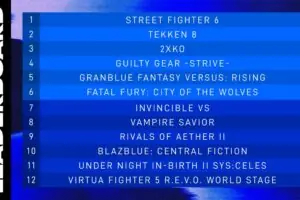It’s the Counter-Strike controversy of the day, apparently, as the issues and concerns have become so unerring and consistent that it feels as though we awake to new problems every day that somehow surmount the previous days controversies and scandals.
It’s not a good time to be a Counter-Strike fan unless you’re a fan of drama and systemic issues that has resulted in some analysts calling this the death of the professional Counter-Strike: Global Offensive scene ‘as we know it’.
This time we’re traveling over to the Oceania region, Australis to be precise, where Tyson ‘asap’ Paterson of team Rooster has just received a twelve-month ban for falsifying documents in order to circumvent the age-limit restriction for DreamHack Masters Winter.
Tyson Paterson allegedly joined a 2v2 tournament with ESL Australia with a restriction that only those above eighteen years of age or above were allowed to compete; as Tyson had competed in tournaments where his age was noted as seventeen, ESL requested proof via ID card that showed his date of birth.
The ID card was falsified, ESL found out, and now the potential of the young Australian player has been arguably squandered as he gets to sit on the sidelines for the next year.
Some are calling the measure extreme, pointing to the complete lack of stream-sniping bans that were handed out as it is rumored that so many teams were stream-sniping, that punishing them would have killed the professional Counter-Strike scene overnight.
The limp-wristed slap on stream-sniping offenders has set what some are calling a dangerous precedent, where now every disciplinary action pushed by ESIC or ESL is going to seem heavy-handed; the alternative, where penalties continue to be limp-wristed and soft sets an extremely dangerous precedent regarding competitive integrity within the scene.
There’s a balance to be struck here, and it frankly appears as though falsifying documents to circumvent rules bears a slap-down to send a message to other organizations: there are still punishments, they still apply, and you need to play by the rules.
This was also seen in Flashpoint as they levied a fine upon MIBR for continuing to stream-snipe after ESIC told organizations to cut the funny business or face repercussions. It should be celebrated by fans, because this is the only way we’re going to maintain any form of competitive integrity within the scene.
An aspect that many have frankly found lacking in the online era of Counter-Strike: Global Offensive to the chagrin of fans on an international scale.





